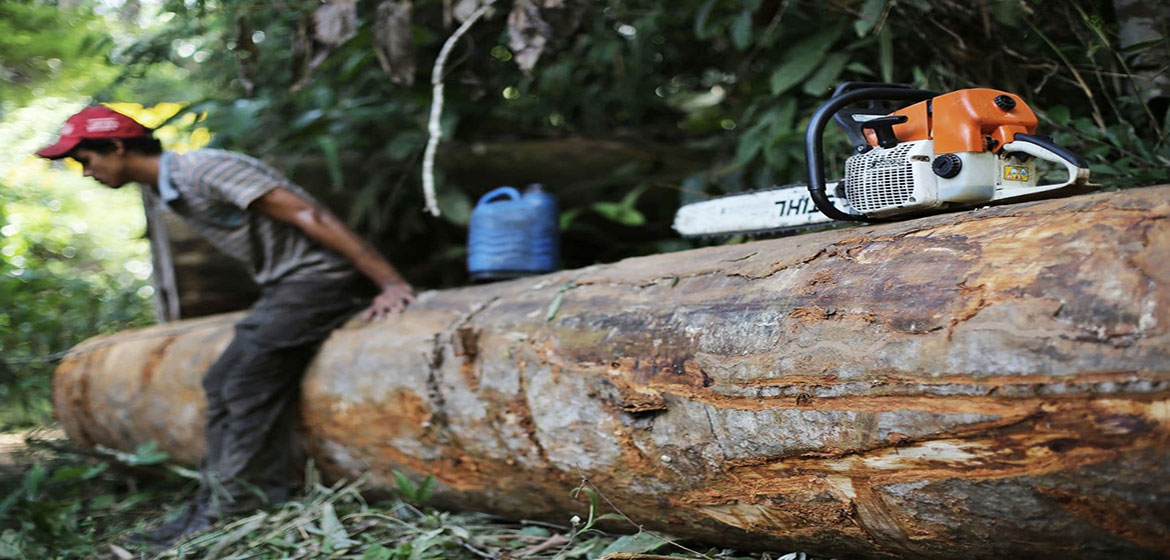By Vicky Tauli-Corpuz
is the United Nations Special Rapporteur on the rights of indigenous peoples.
Night had already fallen. A small group of sugar cane farmers and their families were resting in a makeshift tent when gunfire erupted. Dozens of men started shooting at the impromptu camp on the island of Negros in the Philippines, the latest salvo in a protracted land dispute. Seven adults and two children were killed.
late last year is just one example of the violence inflicted around the world on people defending their land and the environment.
In 2018, at least three people were killed and livelihoods from destructive industries such as mining, logging and agribusiness. Some were shot by the police, and others were gunned down by hired assassins or private security forces.
Just last week, armed miners entered an indigenous community inside protected land in northern Brazil and fatally stabbed at least one of the community’s leaders. This happened as the under President Jair Bolsonaro, who has removed protections against mining and ranching. Threats to the Amazon are threats to the very lungs of the planet, and often it is indigenous peoples who stand in the way of the bulldozers.
Protecting the land has put a target on their backs. In , which recorded the second-highest death toll of land and environmental defenders last year, indigenous peoples are often linked to “” by the government. In India, where at least died last year, millions of indigenous and local peoples are facing imminent eviction due to a that defines them as illegal residents of the forest.
As companies search for new land to feed our ever-growing appetite for everything from food to mobile phones, more and more communities are caught in the crossfire. Many are indigenous peoples and local communities that sustainably manage much of the world’s remaining forestland.
But these murders are only the tip of the iceberg.
While killings receive the most media coverage, they are often only part of long-running campaigns of harassment and violence intended to silence entire communities. Indigenous peoples are often labeled as criminals and even thrown in jail for defending their lands. There is no global data on criminalization, but in my capacity as U.N. Special Rapporteur, I have encountered stories of this persecution .
It is a twisted irony that the people who are destroying the planet normally escape punishment while those who defend it are branded criminals by the very systems meant to protect them. First, they are discredited through smear campaigns calling them “anti-development” or even terrorist. Because they , they can be labeled illegal occupiers of their own lands. Then comes legal prosecution and arrests. Leaders are sometimes left in jail without trial.
Arrest warrants are written but not executed, a threat that hangs above their heads and shadows all they do. Then the violence comes. The legal and physical harassment that often precedes murder means the perpetrators can act with impunity and are rarely brought to justice.
This is happening right now in the Philippines, which last year became the deadliest country in the world for land and environmental defenders, according to Global Witness. Half of those deaths were linked to agribusiness, casualties of the increasingly ruthless scramble for land in the country. As with the case involving the on the island of Mindanao, the conflicts are often driven by international companies working with unscrupulous local agents who seize the ancestral lands of indigenous peoples without their consent.
It devastates me to see my home become such a deadly place — even worse than when . Back then, our indigenous leaders were branded as terrorists and sometimes even murdered — and the same thing is happening today with increasing frequency.
Last year, as I wrote a report on the criminalization of indigenous peoples, . This followed the pattern seen everywhere else: First, they included me in a list of more than 600 alleged terrorists. While I’ve been removed from the terrorist list, after I filed a petition to the court asking for clarification on what my status was, the government continues to hurl false accusations at me. Recently, the government has been showing a PowerPoint presentation in the Philippines and in Europe alleging that communists have infiltrated the United Nations. The presentation includes my picture and a listing of the roles I have played at the organization.
This is part of a concerted effort by the government to stop the adoption of a resolution by the U.N. Human Rights Council to make an inquiry on extrajudicial killings in its war on drugs and of human rights defenders. Despite these efforts, the HRC adopted the resolution on July 11, instructing the high commissioner on human rights to submit a report in June 2020 on the extrajudicial executions.
Indigenous peoples will not be silenced. Our ancestral knowledge and leadership have kept many of the world’s great forests standing. This knowledge is even more vital now as the world struggles to avert the breakdown of our global climate. Where our rights are protected, deforestation rates are lower and carbon storage higher. Our lands and forests store nearly of carbon — that is 33 times the amount of carbon released by the energy sector in 2017.
If we are going to save the planet, we have to stop killing and criminalizing the people who protect it. As competition for ever-scarcer resources becomes more acute, and report after report finds that we are running out of time to avert a global climate crisis, we must push even harder to hold those in power accountable.
Source:
Related to SDG 10: Reduced inequalities and SDG 16: Peace, justice and strong institutions



